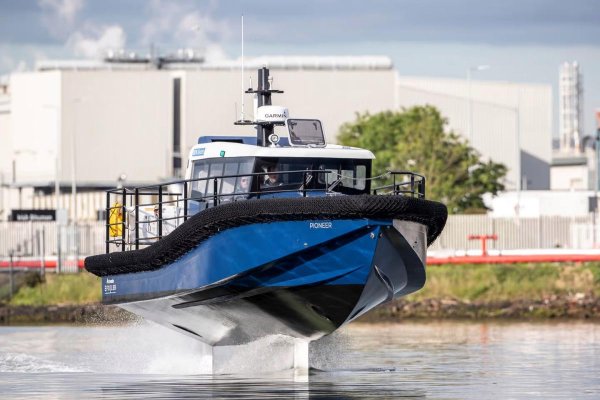IfItsWorthDoing
Veteran Member
This new thread is very timely, thanks. We are in fact building a fossil fuel free trawler this year. It is basically a 34ft/5ton sailing cat lacking mast and rigging.
It is normally specc’d with twin 15hp diesels but we will instead have 3 x 6kW pod drives, with about 72kWh of LiFePO storage, 20 sqm of solar and 3 wind turbines. There will also be a kite sail for when the wind is blowing from a suitable quarter.
We will be using composting heads so will be able to repurpose both diesel and black water tank spaces.
Our dinghy (11.2ft GRP/carbon mix) will likewise have electric propulsion, solar on its T-top and a smaller kite sail.
Both mothership and tender are designed to cruise at 6kn consuming 6kW/h and will be used for coastal hops in the Mediterranean with an occasional longer passage (e.g. 200nm from Menorca to Sardinia, and onwards to Sicily or Tunisia).
They will be featured in a series of articles in Powerboat & RIB from November 2022 onwards.
Over the next two decades we expect to at least double onboard battery capacity using next-generation technology while our motors should easily last with minimal maintenance. At that point fossil fuel should be nigh unaffordable to anyone not belonging to the wealthiest one percent …
It is normally specc’d with twin 15hp diesels but we will instead have 3 x 6kW pod drives, with about 72kWh of LiFePO storage, 20 sqm of solar and 3 wind turbines. There will also be a kite sail for when the wind is blowing from a suitable quarter.
We will be using composting heads so will be able to repurpose both diesel and black water tank spaces.
Our dinghy (11.2ft GRP/carbon mix) will likewise have electric propulsion, solar on its T-top and a smaller kite sail.
Both mothership and tender are designed to cruise at 6kn consuming 6kW/h and will be used for coastal hops in the Mediterranean with an occasional longer passage (e.g. 200nm from Menorca to Sardinia, and onwards to Sicily or Tunisia).
They will be featured in a series of articles in Powerboat & RIB from November 2022 onwards.
Over the next two decades we expect to at least double onboard battery capacity using next-generation technology while our motors should easily last with minimal maintenance. At that point fossil fuel should be nigh unaffordable to anyone not belonging to the wealthiest one percent …

